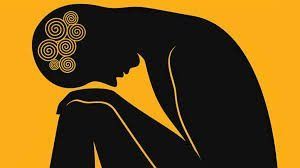Depression
350 million people suffer from depression worldwide, and it is a leading cause of disability. Approximately 1 in 4 people in the UK will experience a mental health problem each year, with 1 in 6 people reporting they experience a common mental health problem, such as depression and anxiety in any given week. In fact 4-10% of people in the UK will experience depression in their lifetime.
Depression is a low mood that continues for a prolonged period, and affects everyday life. Causing loss of pleasure or interest, feelings of low self-worth or guilt , poor appetite and poor concentration, low energy, and disturbed sleep.
If you are diagnosed with depression, you may be told that you have mild, moderate or severe depression. This describes the impact your symptoms are having on you currently, and what type of treatment you're likely to be offered. You may move between mild, moderate and severe depression during one episode of depression or across different episodes.
The mildest form of depression can just mean feeling low in mood. It doesn’t stop you leading a normal life but makes everything more difficult to do and seem less pleasurable. The most severe form of depression can be life-threatening because it may make you feel like giving up on life or suicidal.
There are also specific types of depression:
There are several theories regarding what causes depression. Causes differ significantly between different people, and for some people a combination of different factors can cause depression. Some also find they become depressed without an obvious reason.
Possible causes of depression include:
Research has identified several specific genes associated with depression, showing that if you have a close family member with depression, you are more likely to experience depression yourself. While this might be caused by our genetics, this could also be because we learn behaviour and coping strategies from the our parents or guardians.
Childhood experiences
Evidence shows that going through difficult experiences during childhood increases our vulnerability to experiencing depression later in life. These experiences may include:
Difficult childhood experiences can have a big impact on your self-esteem and how you learned to cope with difficult emotions and situations. Which may make you less able to cope with life's highs and lows, and lead to depression later in life.
Life events
In a lot of cases, depression may have been triggered by an unwelcome, stressful or traumatic event. These may include:
Other mental health problems
If you suffer from other mental health problems, it is common to experience depression as well. This can be because coping with the signs and symptoms of the mental health problem can trigger depression. It is common to experience depression if you also suffer from:
Physical health issues may contribute to the risk of developing depression. Lots of health problems can be somewhat difficult to manage, and can have a huge impact on your mental health. These might be:
Poor dietary intake, lack of exercise and sleep may affect mood even in otherwise healthy individuals, and make it more difficult to cope with taumatic or emotional situations in life.However,there are some specific links between dietary intake and depression. For example, eating the right balance of fats is important to the function of the entire nervous system, but more specifically low intake of Omega-3 fatty acids are associated with mental health issues. Getting enough quantity and quality of protein is also important, particularly as it provides the precursor amino acids for the neurotransmitters involved in mood.Too much sugary food and drinks can impact your mood massively, because the sugar "high" is always followed by a "low" i.e. your blood sugar drops which can make you feel irritable, tired and depressed. Consuming too much caffeine, and consuming it too late in the day, can cause numerous problems such as: anxiety, depression and disturbed sleep.
Book In Now
Depression is a low mood that continues for a prolonged period, and affects everyday life. Causing loss of pleasure or interest, feelings of low self-worth or guilt , poor appetite and poor concentration, low energy, and disturbed sleep.
If you are diagnosed with depression, you may be told that you have mild, moderate or severe depression. This describes the impact your symptoms are having on you currently, and what type of treatment you're likely to be offered. You may move between mild, moderate and severe depression during one episode of depression or across different episodes.
The mildest form of depression can just mean feeling low in mood. It doesn’t stop you leading a normal life but makes everything more difficult to do and seem less pleasurable. The most severe form of depression can be life-threatening because it may make you feel like giving up on life or suicidal.
There are also specific types of depression:
- Dysthymia – continuous mild depression that lasts for two years or more. Also called chronic depression or persistent depressive disorder (PDD).
- Seasonal affective disorder (SAD) – depression that usually (but not always) occurs during the winter.
- Prenatal depression – also called antenatal depression, it occurs during pregnancy.
- Postnatal depression (PND) – occurs in the weeks and months after child birth. Postnatal depression is usually diagnosed in women but it can affect men, too.
- Premenstrual dysphoric disorder (PMDD) - PMDD is not really a type of depression but really a severe form of premenstrual syndrome (PMS). Many women experience PMS, but in some their symptoms are severe enough they impact on daily life, and depression is a major symptom.
There are several theories regarding what causes depression. Causes differ significantly between different people, and for some people a combination of different factors can cause depression. Some also find they become depressed without an obvious reason.
Possible causes of depression include:
- genetic inheritance
- childhood experiences
- life events
- other mental health problems
- diet, exercise and sleep
- physical health problems
- medication, drugs and alcohol
Research has identified several specific genes associated with depression, showing that if you have a close family member with depression, you are more likely to experience depression yourself. While this might be caused by our genetics, this could also be because we learn behaviour and coping strategies from the our parents or guardians.
Childhood experiences
Evidence shows that going through difficult experiences during childhood increases our vulnerability to experiencing depression later in life. These experiences may include:
- traumatic events
- neglect
- physical, sexual or emotional abuse
- loss of someone close to you
- unstable family life
Difficult childhood experiences can have a big impact on your self-esteem and how you learned to cope with difficult emotions and situations. Which may make you less able to cope with life's highs and lows, and lead to depression later in life.
Life events
In a lot of cases, depression may have been triggered by an unwelcome, stressful or traumatic event. These may include:
- being physically or sexually assaulted
- being bullied or abused
- bereavement
- the end of a relationship
- losing your job or unemployment
- other major life changes, e.g. moving house, getting married or changing job
Other mental health problems
If you suffer from other mental health problems, it is common to experience depression as well. This can be because coping with the signs and symptoms of the mental health problem can trigger depression. It is common to experience depression if you also suffer from:
- anxiety
- PTSD
- eating disorders
Physical health issues may contribute to the risk of developing depression. Lots of health problems can be somewhat difficult to manage, and can have a huge impact on your mental health. These might be:
- life threatening illnesses
- chronic health issues
- health issues that significantly alter your lifestyle
- endorcrine (hormone) issues, particularly thyroid and parathyroid problems
- conditions affecting the brain and central nervous system
- symptoms related to the menstrual cycle or the menopause
- sleep problems
- low blood sugar
Poor dietary intake, lack of exercise and sleep may affect mood even in otherwise healthy individuals, and make it more difficult to cope with taumatic or emotional situations in life.However,there are some specific links between dietary intake and depression. For example, eating the right balance of fats is important to the function of the entire nervous system, but more specifically low intake of Omega-3 fatty acids are associated with mental health issues. Getting enough quantity and quality of protein is also important, particularly as it provides the precursor amino acids for the neurotransmitters involved in mood.Too much sugary food and drinks can impact your mood massively, because the sugar "high" is always followed by a "low" i.e. your blood sugar drops which can make you feel irritable, tired and depressed. Consuming too much caffeine, and consuming it too late in the day, can cause numerous problems such as: anxiety, depression and disturbed sleep.

Seasonal Affective Disorder (SAD)
Coming soon!

Prenatal and Postnatal Depression
Coming soon!
Premenstrual Dysphoric Disorder
Premenstrual Dysphoric Disorder - severe form of premenstrual syndrome (PMS). Many women experience PMS, but for some women their symptoms are severe enough to seriously impact their daily life. This is when you might receive a diagnosis of PDD.
While PDD is not a type of depression, most women who experience PDD find that depression is a major symptom.
While PDD is not a type of depression, most women who experience PDD find that depression is a major symptom.

